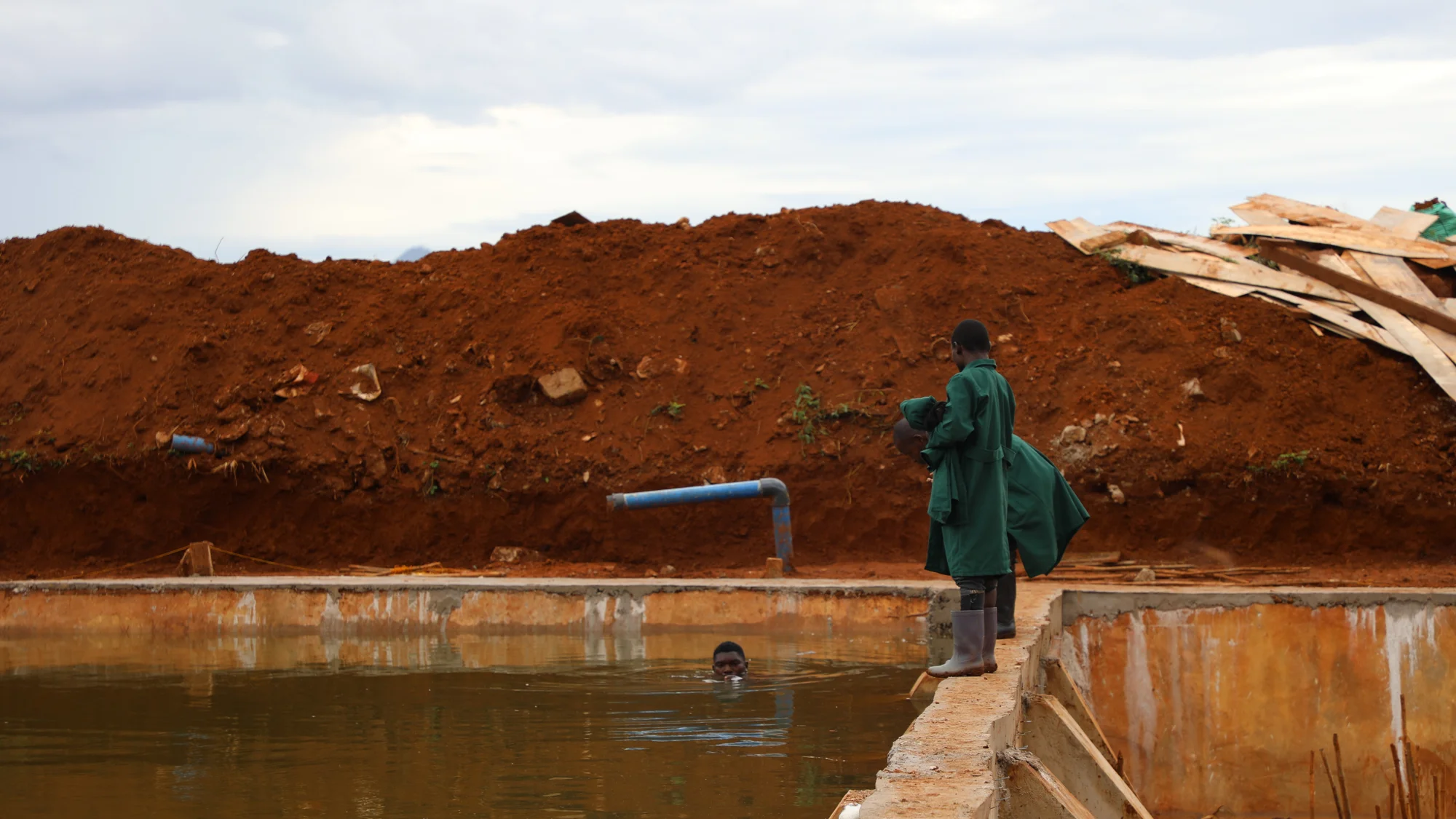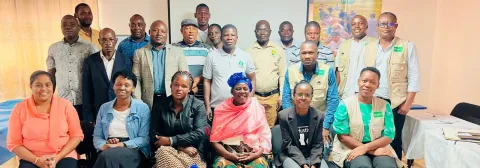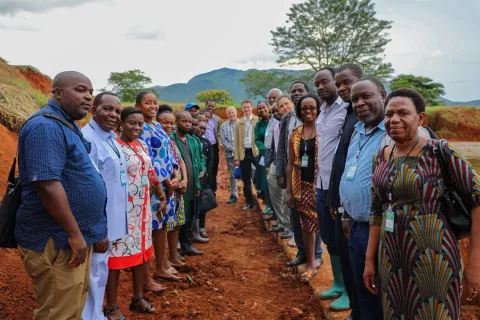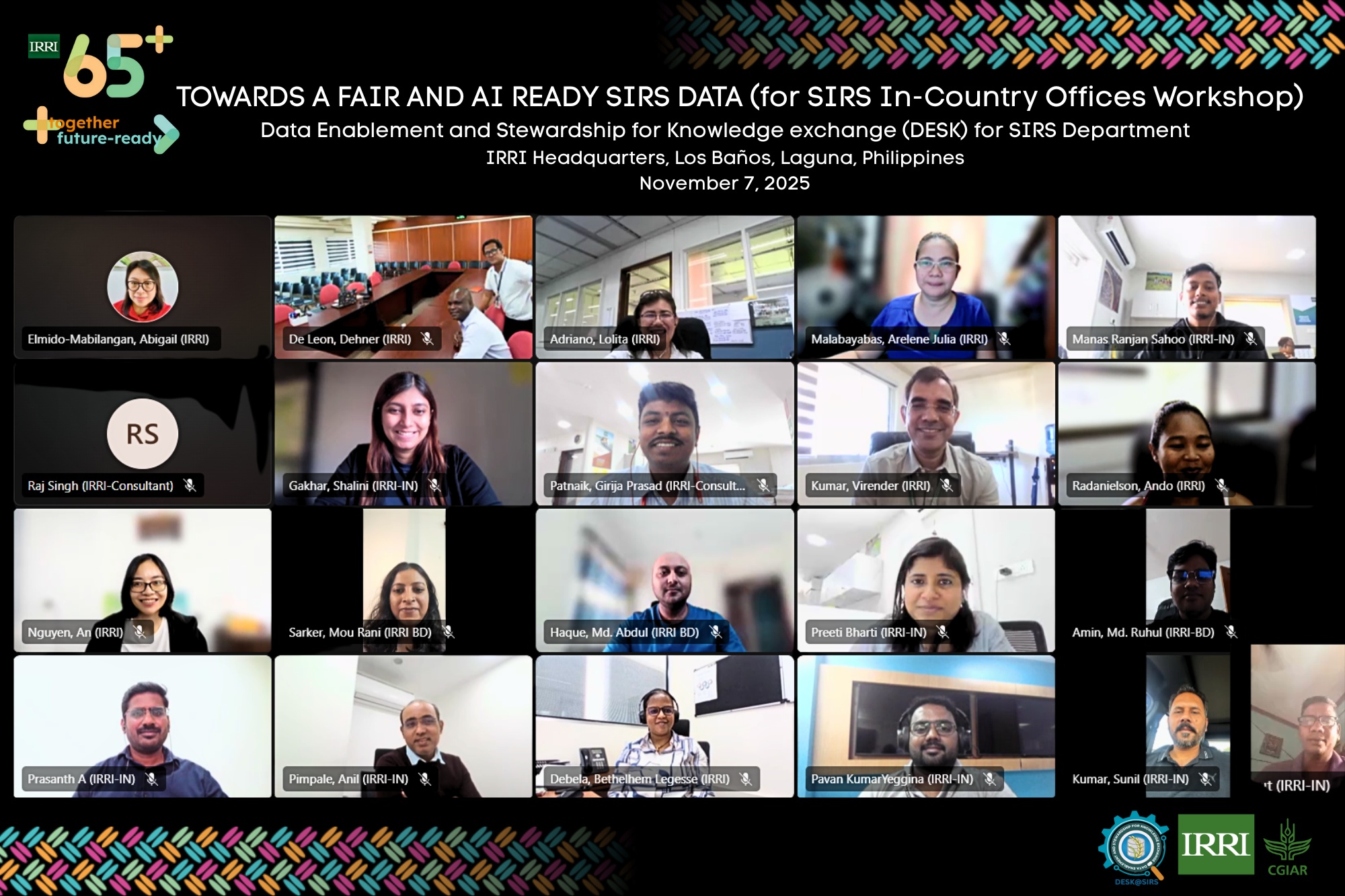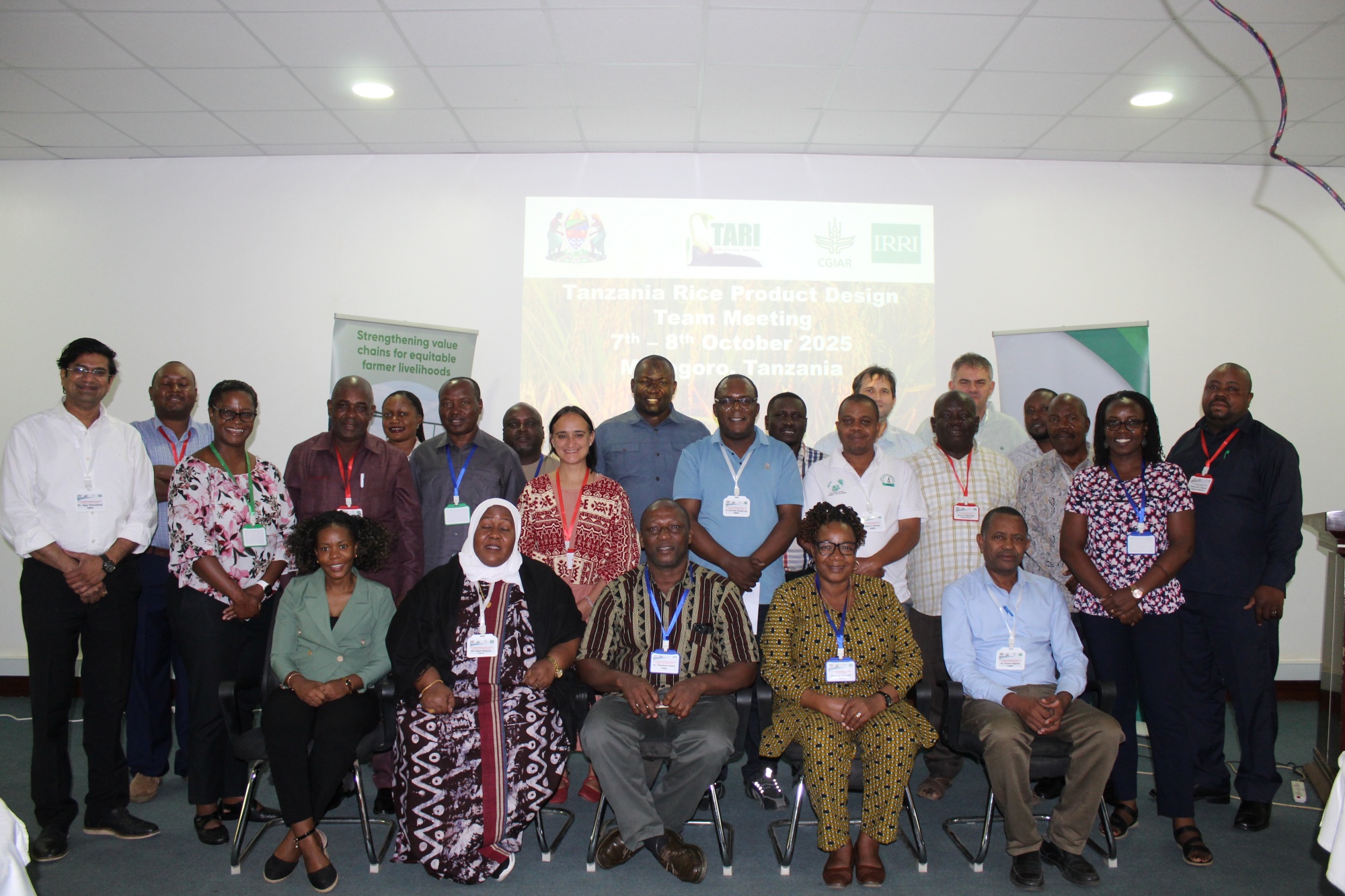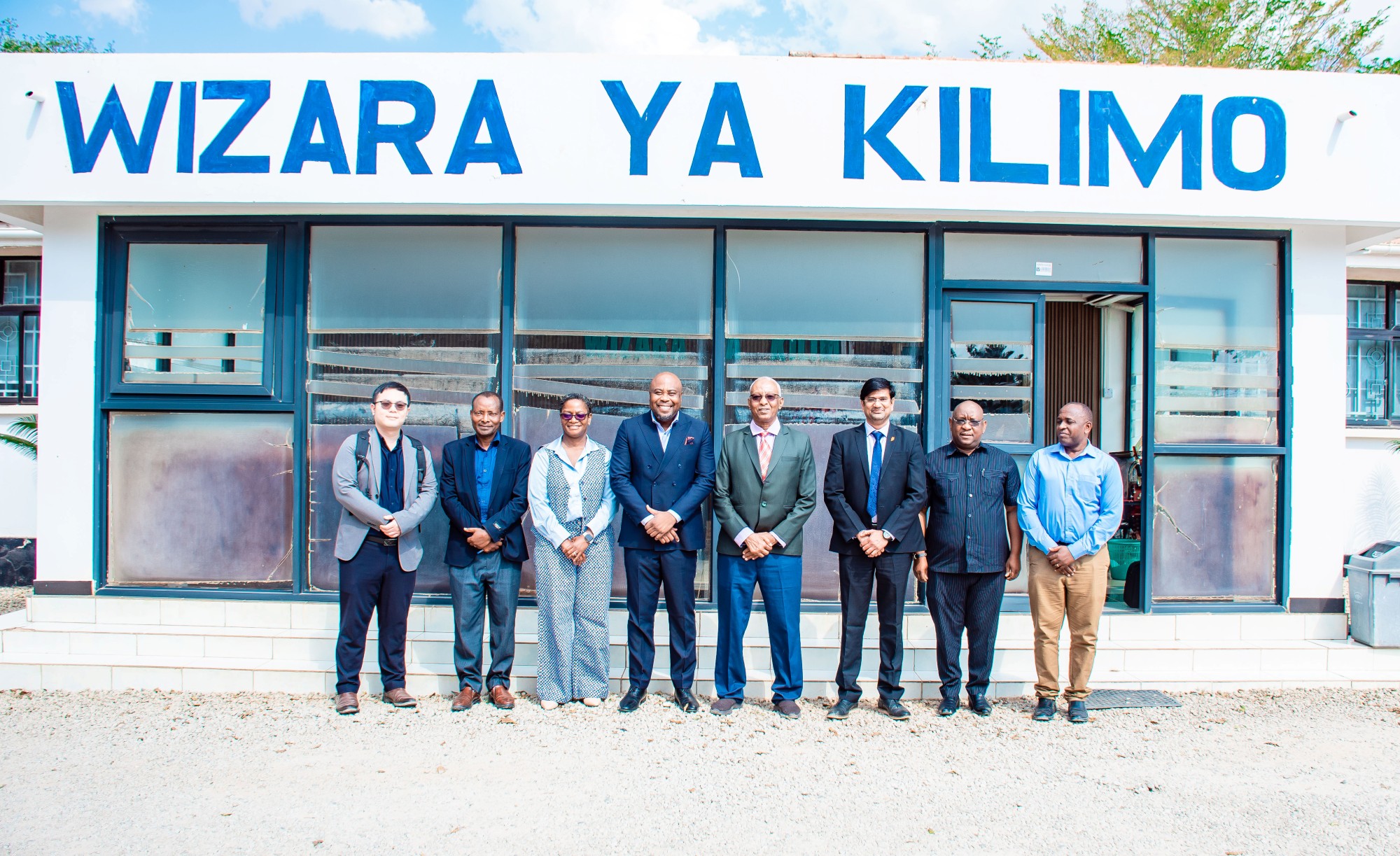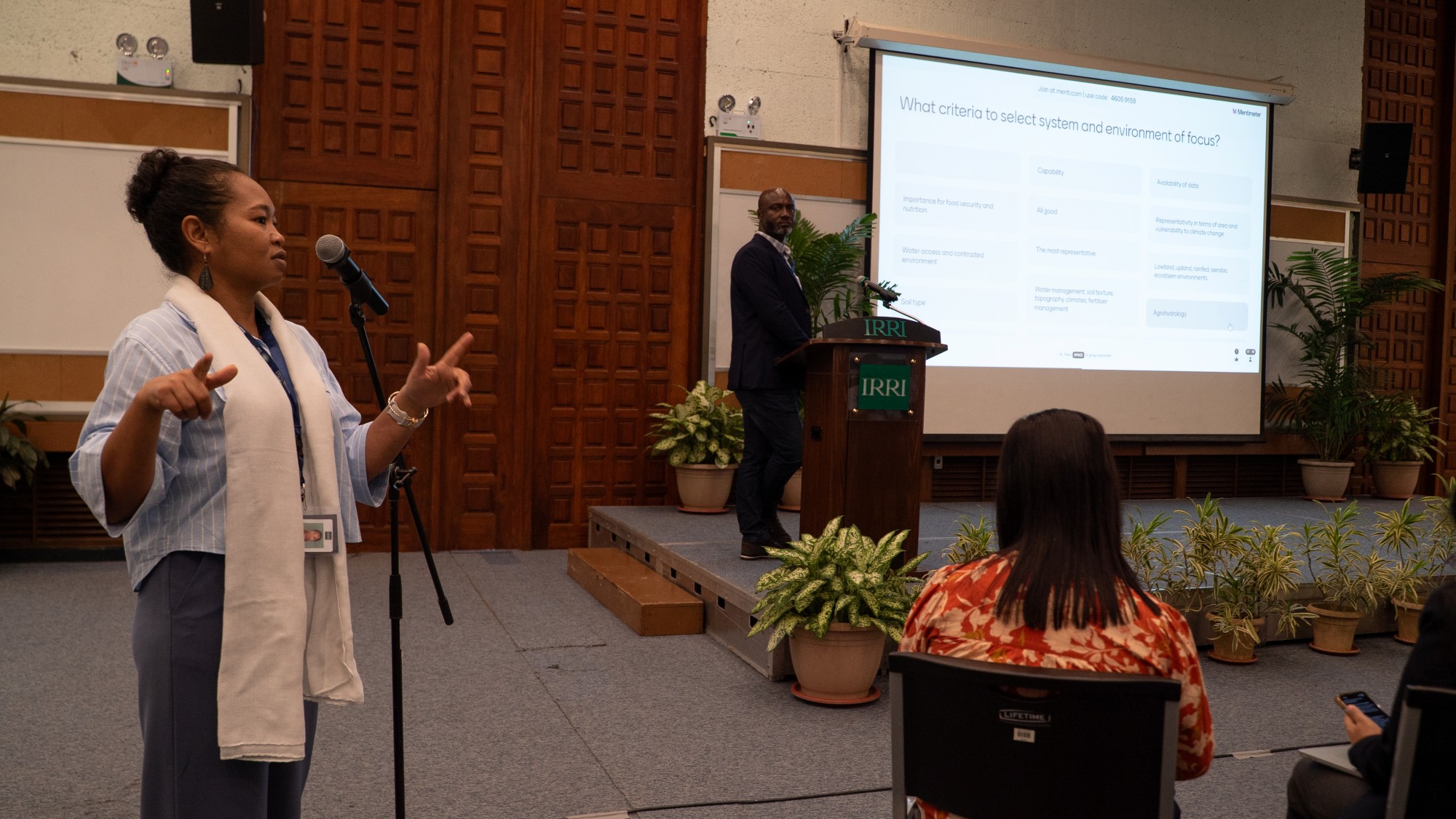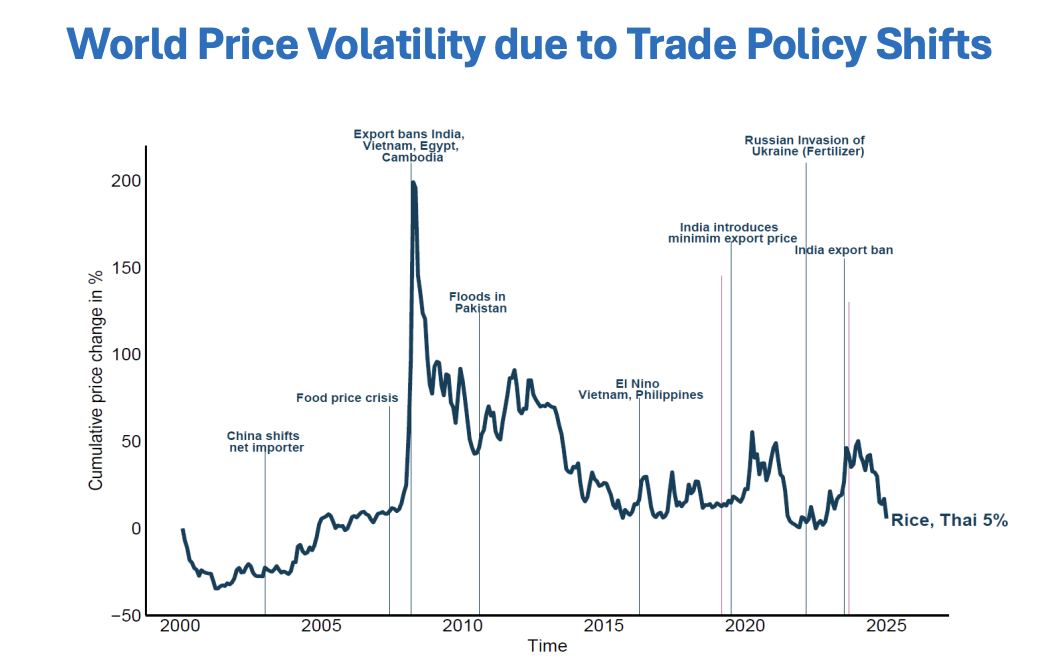Overview
Rice production in Eastern and Southern Africa (ESA) has grown ten times its size since the 1960s, but consumption has also exponentially surged due to urbanization, changing dietary preferences, and population growth. From 2014 to 2024, the USDA recorded that SSA’s domestic consumption of milled rice has completely overtaken production capacities at an average of 14 million metric tons every year.
As demand intersects with regional production capacities, the region is beset by the impacts of climate change such as flooding, drought, and increased salinity in soil. Nearly 70% of rice production in the region is produced in lowlands under rainfed conditions which makes small holder rice farmers vulnerable to extreme weather events such as floods and droughts. Some areas in SSA experience cyclones, drought, and increased salinity which all affect rice production. Women and young farmers also make up a significant portion of agricultural work which makes it a strategic crop for addressing social equity in the continent. In SSA, about 49% of women are employed in agriculture while more than 1 in 2 young people work in agricultural spaces.
Due to these emerging trends and increasing demands, markets in SSA must adapt to become more competitive and resilient to adapt to the evolving rice value chain and changing climatic conditions at scale. Solutions must also focus on providing opportunities to women, youth, and other marginalized populations so that no one is left behind.
In partnership with CGIAR Centers in the continent such as the Africa Rice Center (AfricaRice), International Livestock Research Institute (ILRI), International Institute of Tropical Agriculture (IITA), as well as key NARES partners from IRRI’s country offices, the institute’s regional representation aims to support SSA’s goals of guaranteeing food, nutrition, social, and livelihood security, while fostering agricultural sustainability. IRRI aims to ensure that SSA meets its goals of rice self-sufficiency by directing rice research and policy development as well as driving investments that aim to improve the rice industry in the region.
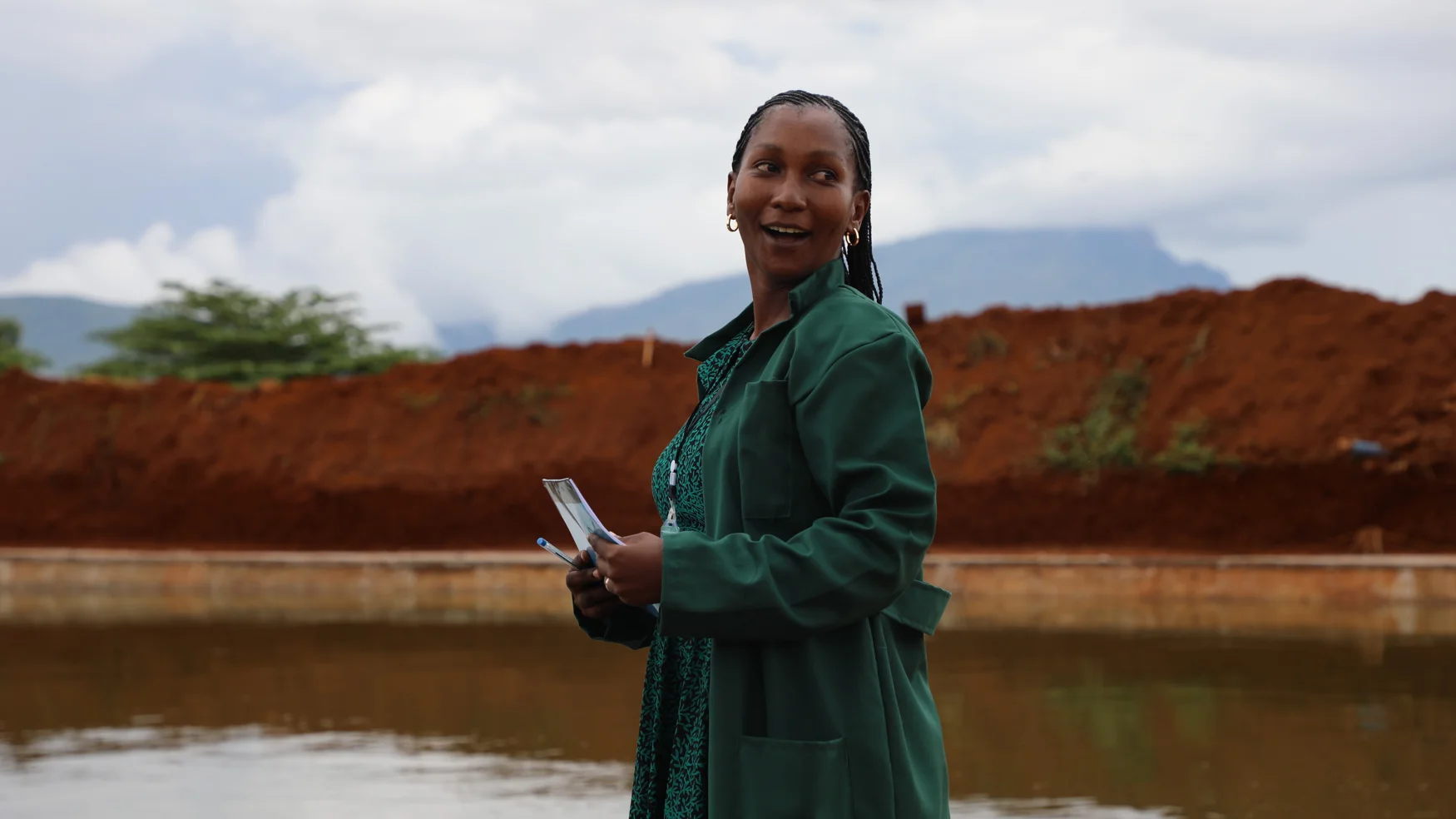
Our Country Offices
Sofia Tesfazion
IRRI Africa Regional Director
Office Address
ILRI C/O IRRI
PO Box 30709, Nairobi 00100, Kenya
Old Naivasha Road
Tel: +254 711 033 678
